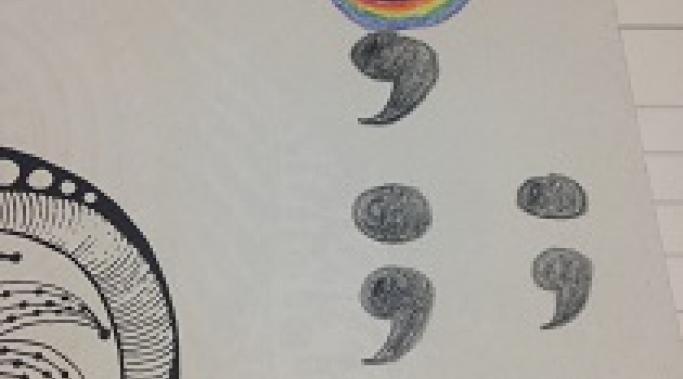Blogs
Emotional manipulation in a friendship is toxic to your self-esteem and confidence. The worst part is that the victims are generally people who are already struggling with loving themselves or co-dependency and who often lack self-confidence. This makes it hard to recover and to protect yourself from the effects of emotional abuse. The more you know about emotional manipulation, the easier it will be to protect yourself from emotional manipulation in your friendships.
*** Warning: this post contains frank discussions of suicide and suicidality. ***
Feeling suicidal when you live with schizophrenia and schizoaffective disorder is common, and I’m no exception (Schizophrenia, Schizoaffective Disorder, Suicidal Ideation). I’ve been feeling suicidal with schizoaffective disorder for over a decade—even when things are going well, the possibility of suicide has lurked in the back of my mind like a sleeping monster. And right now, not only do I have schizophrenic and schizoaffective symptoms to worry about, but the world seems to be falling apart around me.
Anxiety has a way of ruining relationships, making us feel unlucky in love. As anyone who has ever had a relationship involving two people and an annoying third wheel—anxiety—knows, love can be hard to feel and enjoy when anxiety gets in the way. Take heart: there are things you can do to keep anxiety from ruining your relationship.
Managing medical issues with dissociative disorders can include reducing stress at a doctor's office. Doctors and hospitals can be stressful and anxiety-provoking, which can increase dissociation. For some, medical issues can even be a trigger of past trauma. So what can you do to stay healthy, manage medical issues and reduce stress at a doctor's office with a dissociative disorder?
Depression requires routine to successfully cope with the illness. Because depression is not routine, it is important and beneficial to establish patterns that structure the way you live in order to combat the surprises that depression can often throw your way. I'm finding that my depression affects me more the less I follow a routine. I am less capable of bouncing back from a bad brain day; I have less control over my rapidly shifting moods; I dismiss my basic needs (Depression Does Not Eliminate Your Basic Needs). I've learned the hard way that living well with depression requires routine.
You may be able to manage self-harm urges with the Calm Harm application, or app. Recently, a counselor shared this app with me. Calm Harm, a British app, is designed to help people of all ages deal with self-harm urges. It mainly does this by inviting the user to "ride the wave"--self-harm, the app says, is like a wave--strongest when you want to do it, and then weaker with time. The app then provides suggestions, a timer, and feedback on how you handle self-injury. It's an interesting app for anyone, but I cannot recommend it strongly enough for someone who struggles with self-injury. Here is how you can manage self-harm urges using the app.
Keeping a marriage together while you balance life transitions with mental illness can feel impossible. It's taken my husband and me almost 16 years to anticipate and manage transitions in life. After many missteps, we have learned a few techniques that help our marriage with mental illness survive life's transitions (Why Is Even Good Change Sometimes So Hard?).
If you practice appreciation you can increase life satisfaction. When you practice appreciation, you are acknowledging the worth and significance of someone or something. The act of appreciating enhances positive emotions (The Magic of Appreciation). So, if you want to improve your own emotional wellbeing and live a more blissful life, start practicing appreciation.
Hi, I’m Melissa, and I parent a child with attention-deficit/hyperactivity disorder (ADHD), disruptive mood dysregulation disorder (DMDD), and anxiety. I am many things. I’m a clinical social worker in Minnesota. I am a writer and a gamer. I am a fan of cats, and I’m a bit of a geek. I am a parent of two beautiful children. And, yes, one of them happens to have a mental illness.
When a parent experiences posttraumatic stress disorder (PTSD), it is important to understand the potential impact this can have on the children, including the possibility of secondary-traumatic stress. While children can have negative reactions when a parent suffers from PTSD, they can also thrive and develop unique strengths (A Parent with PTSD Can Affect the Whole Family). Watch as my oldest son offers his unique perspective on growing up when a parent has PTSD.










I believe she will only be able to rid herself of her demons, and hopefully her BPD as well, when she's ready to confront the abuse of her father. If she can put the blame where it belongs, she may stop projecting that victim/perpetrator cycle on the present men in her life. These demons are a metaphor for the purgatory she has created for herself. That reality has consequences in the real world, but it need not be real in the tangible sense. Exorcising her demons will require the expenditure of real physical energy and probably the destruction of aspects of her personality. If this ever happens, and it's possible but not probable, then these demons will evaporate. They are only as real as one's personality is real. In short, reality is not the question, it's what you make of the things you feel to be real.